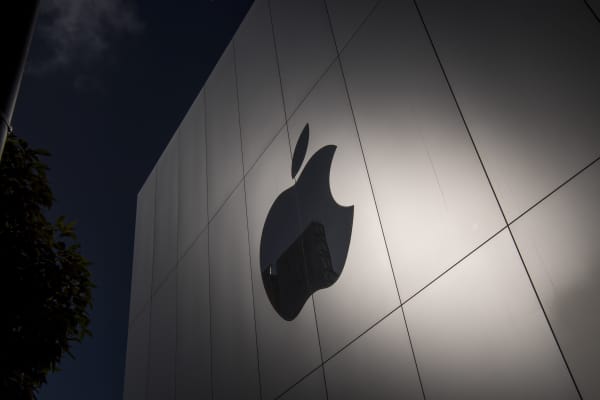Intel shares dropped sharply on Monday after a Bloomberg report that Apple would ditch Intel chips for an in-house model on Mac computers.
Shares of Intel fell as much as 9 percent after the Bloomberg report, which cited unnamed people familiar with the matter. Apple declined to comment and Intel said it does not respond to speculations or rumors.
There are many different types of chips and processors that go into Apple's products, both from Intel and competitors like Qualcomm, Broadcom and Arm. But Apple has increasingly looked to bring design of the most important chips — for things like artificial intelligence and augmented reality — in-house, with chips for Mac, Watch, AirPods and Beats.
In this case, Bloomberg reported, Apple would replace Intel processors in Macs as part of a multi-step transition beginning in 2020. The 9 percent drop was the worst for Intel since January 2016, 2 years ago, pushing shares into what Wall Street traders call "correction" territory, 10 percent below recent highs.
When Apple released its A11 bionic chip for the iPhone X, executives told Mashable that they began designing chips over a decade ago, and that each chip is designed 3 years out.
Johny Srouji, Apple's senior vice president of hardware technologies, said last year that Apple was eyeing chip-based acquisitions in Israel, while chief financial officer Luca Maestri has said that a huge chunk of Apple's R&D budget goes to chips.
"Today, we do much more in-house development of some fundamental technologies than we used to do a few years ago, when we did more of that in the supplier base — the work we do around processors or sensors," Maestri said at the Goldman Sachs Technology and Internet Conference in San Francisco last year. "It's very important for us because we can push the envelope on innovation, we can better control timing, cost, quality. We look at that as a great strategic investment."
While Intel has many lines of business, it is still known for its "Intel inside" computer stickers. Apple is a large and influential customer. The Mac Pro and iMac Pro use the Intel Intel Xeon, the iMac has Intel Core i5 and i7 processors, and Macbooks and use versions of the Intel Core i5, Intel Core m3 and Intel Core i7.
The full Bloomberg report is here.
— CNBC's Josh Lipton, Sally Shin, John Melloy and Paayal Zaveri contributed to this report


